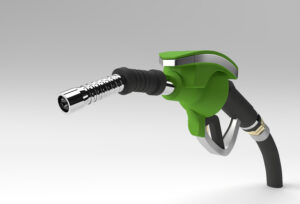What are the benefits and when can you use off-road diesel
Off-road diesel excels with a higher cetane rating, enhancing engine performance and offering cost savings without taxes. However, it’s strictly for off-road vehicles like tractors and construction machinery. Using it in regular on-road cars is illegal, leading to fines and potential imprisonment.

Advantages of off-road diesel
Higher Cetane Rating: Igniting Efficiency
Off-road diesel takes the lead with a significantly higher cetane rating. With quicker ignition, 20% fewer emissions, and an impressive 15% reduction in engine downtime. It’s not just fuel; it’s a performance booster.
Engine Performance and Durability
Crafted for off-road adventures, this fuel has specialized additives that provide extra lubrication and deliver approximately 12% improvement in engine efficiency. Better performance isn’t just a promise; it’s a measurable reality with a 10% boost in fuel economy.
No Tax, More Savings
On-road diesel carries higher taxes, supporting highway maintenance. The federal tax is the same across the U.S., but states can add charges based on volume or spending. In contrast, off-road fuel sidesteps federal and state excise taxes due to non-road use, as it causes no wear and tear on the roads, saving you more with each gallon.
Cost-Effective Fueling
Brace yourself for the financial magic – lower tax rates. Off-road diesel translates into tangible savings, averaging 25 to 50 cents per gallon. For businesses on the off-highway path, it’s not just about fuel; it’s about a budget-friendly journey with an estimated annual savings of $5,000 to $10,000.
Legal Ease: Staying Compliant
Dyed in red for a reason, off-road diesel isn’t just a visual standout; it’s a regulatory lifesaver. If you follow standard rules, avoid penalties, choose a fuel that aligns with the law while boasting a 0% penalty rate for unauthorized use. It’s your ticket to smooth, trouble-free operations.
Dyed Diesel: A Dual Role in Heating
Expand the use of dyed diesel beyond the road. If your furnace can run on heating oil, embrace dyed diesel for a potential 20% savings on heating costs. It’s not just a fuel choice; it’s a strategy for financial warmth.

On-Road Diesel vs Off-Road Diesel: Key Differences
Let’s simplify the diesel dilemma. Both on-road and off-road options share the same chemical makeup, but here’s the twist.
Legal Roads:
On-road Diesel: Legal for road vehicles, dispensed at gas stations.
Off-road Diesel: Reserved for non-road machines (tractors, generators).
Legal Boundaries:
On-road Diesel: Mandatory for licensed road vehicles in the U.S.
Off-road Diesel: Illegal for on-road vehicles; hefty fines ($100 to more than $1,000 for one gallon) for misuse, or you may lose your job.
Color Code:
On-road Diesel: Clear, available at local gas stations, often called clean or green fuel due to eco-friendliness.
Off-road Diesel: Red-tinted, dyed for off-road identification.
Sulfur Content:
On-road Diesel: Adheres to low sulfur content standards set by the EPA ( (15 ppm sulfur).
Off-road Diesel is intended for off-road machinery and may have a higher sulfur content (maximum 3000-5000 mg/kg).
Tax Terrain:
On-road Diesel: Subject to state excise and federal taxes, generally pricier.
Off-road Diesel: Tax-exempt, cost-effective for industries like construction and agriculture.
Availability Channels:
On-road Diesel: Available for purchase at gas stations.
Off-road Diesel: Sold through bulk distributors for industrial use.

Off-road Diesel: Who Qualifies?
Off-road diesel isn’t for everyone, but it could be your fuel hero if you’re in specific industries.
Who Can Use?
- Construction Industry: Heavy-duty champions like cranes, loaders, and excavators
- Agriculture Realm: From tractors to harvesters, it fuels the farm force.
- Specialty Equipment: Generators, heaters, and more, amplifying productivity.
Exceptions:
- Separate Tanks for Equipment: If your vehicle has a dedicated tank for extra gear, like in reefer trucks, and it doesn’t power the motor, you’re in.
- Emergency Saviors: In state-declared emergencies (severe weather or disasters), using off-road diesel on public roads might get a temporary nod. Rules vary, so check your state’s stance.
Who Are Not Allowed To Use?
- Regular On-road Vehicles: Cars, SUVs, and standard trucks hitting public roads or any vehicle having the license to move on the road.
Ultimately, on-road powers our daily commute, but off-road, dyed in red, proves the unsung hero for industries, offering substantial savings. Portland’s and Pacific Northwest’s off-road fuel suppliers have trustworthy reputations as fuel suppliers.
Legal boundaries are crucial – fines loom for misusing off-road diesel. So, whether on legal roads or off, choose wisely, stay compliant, and drive on with informed decisions and smoother rides ahead!

